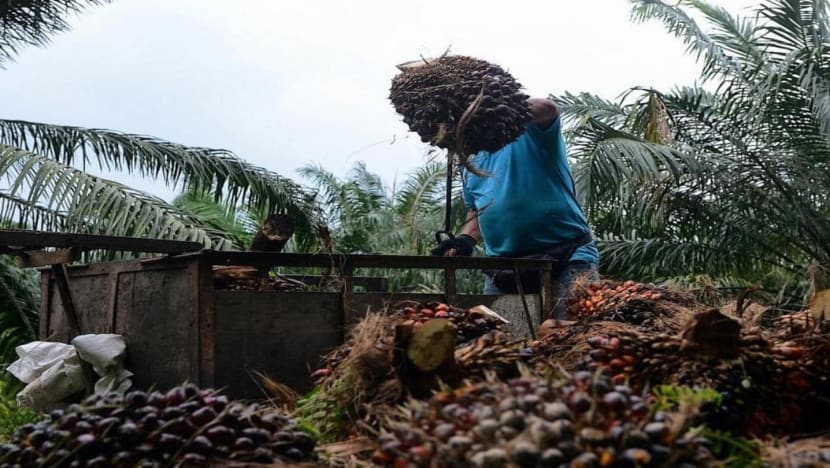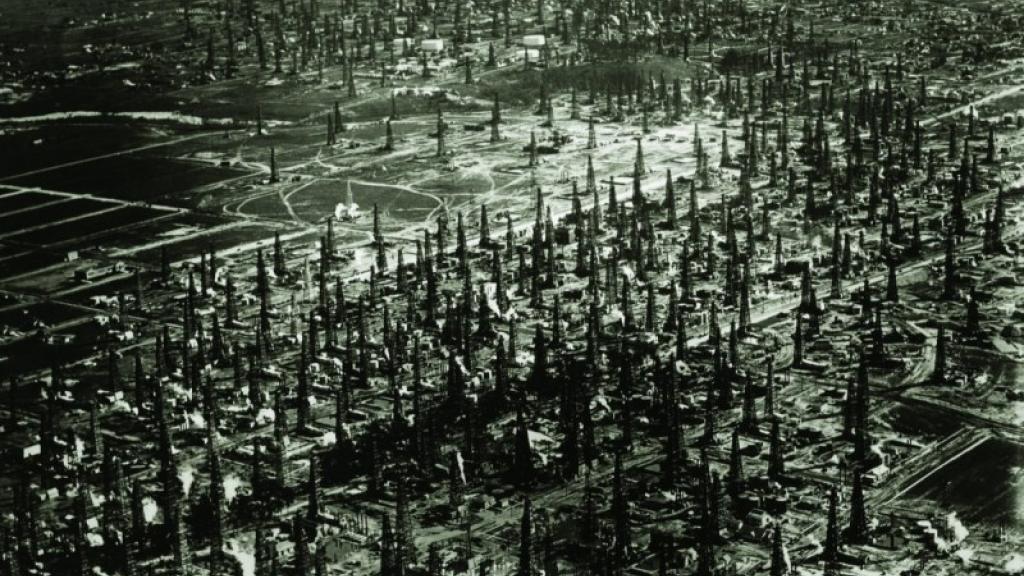
Malaysia is the world's second-largest producer of palm oil after Indonesia.
25 Apr 2022
KUALA LUMPUR: The global demand for palm oil is likely to switch to Malaysia after Indonesia's export ban, but industry players warned that labour shortage could hamper output.
Plantation Industries and Commodities Minister Zuraida Kamaruddin told the media on Sunday (Apr 24) that Malaysia should be able to increase its production of palm oil with the reopening of the country’s borders.
“I am confident that Malaysia is ready and able to supply palm oil to global markets because our production is expected to rise following the reopening of its borders, which has enabled the hiring of foreign workers,” Mdm Zuraida was quoted as saying by Bernama.
In an announcement last Friday, Indonesian President Joko Widodo said the exports of cooking oil and crude palm oil (CPO) would be suspended starting this Thursday in a bid to stabilise prices in the country.
“The government prohibits the exports of palm oil used in cooking oil,” said Mr Widodo, who is also popularly known as Jokowi.
In recent months, cooking oil prices have soared in Indonesia amid an increase in global CPO prices, prompting the government to implement price ceilings and export restrictions.
In a separate event on Sunday, Deputy Plantation Industries and Commodities Minister Wee Jeck Seng said the local palm oil production is currently being affected by the ongoing labour shortage issue, and therefore it is unlikely that Malaysia will be able to fulfil the high export demand gap left by Indonesia.
“This imbalance in demand and supply would see prices of palm oil and other competing oils soaring," he was quoted as saying by Bernama.
Related:

As global palm oil prices rise, cooking oil stock runs low in Indonesia’s retail outlets

Indonesian farmers support palm oil export ban
Dr Wee said as of last year, Indonesia's palm oil accounted for 59 per cent and 56 per cent of the world’s palm oil production and exports respectively, adding that Indonesian palm oil exports represented 30 per cent of total world oils and fats exports.
“As such, this drastic step taken by Indonesia will definitely have a massive impact on other countries, especially major palm oil importers such as China, India and the European Union,” he said after attending his constituency’s Muslim breaking of fast event.
The deputy minister added that the Malaysian government’s move to set price control and a ceiling price for palm cooking oil could also help protect the consumers from the effects of surging palm oil prices in the global market.
However, Dr Wee said that this also means that the government will have to bear the higher cost of cooking oil subsidies due to the increase in palm oil prices in the market to ensure that the welfare and interests of Malaysian consumers are protected.
ADVANTAGE TO MALAYSIAN PALM OIL INDUSTRY
Meanwhile, the Malaysian Palm Oil Association (MPOA) said the Indonesian export ban is likely to be an advantage to the Malaysian palm oil industry.
The Star quoted MPOA chief executive officer Nageeb Wahab as saying that he envisaged the local palm oil industry would be able to reap higher export earnings this year, particularly in the next two to three months.
Related:

Malaysia's palm oil board urges countries to reconsider food versus fuel priorities
Malaysian Palm Oil Board (MPOB) director-general Ahmad Parveez Ghulam Kadir said that “any policy changes by Indonesia will definitely affect Malaysia” as the latter is the second-largest producer and exporter of palm oil after Indonesia.
“The ban will definitely see most of the global palm oil demand switching to Malaysia,” he said, as quoted by the Star.
However, he also noted that Malaysia is facing an issue with palm oil supply due to the severe labour shortage and the country may not be able to absorb much of the excess global demand.

Sun, April 24, 2022
By Rajendra Jadhav
MUMBAI (Reuters) - Global edible oil consumers have no option but to pay top dollar for supplies after Indonesia's surprise palm oil export ban forced buyers to seek alternatives, already in short supply due to adverse weather and Russia's invasion of Ukraine.
The move by the world's biggest palm oil producer to ban exports from Thursday will lift prices of all major edible oils including palm oil, soyoil, sunflower oil and rapeseed oil, industry watchers predict. That will place extra strain on cost-sensitive consumers in Asia and Africa hit by higher fuel and food prices.
"Indonesia's decision affects not only palm oil availability, but vegetable oils worldwide," James Fry, chairman of commodities consultancy LMC International, told Reuters.
Palm oil - used in everything from cakes and frying fats to cosmetics and cleaning products - accounts for nearly 60% of global vegetable oil shipments, and top producer Indonesia accounts for around a third of all vegetable oil exports. It announced the export ban on April 22, until further notice, in a move to tackle rising domestic prices.
"This is happening when the export tonnages of all other major oils are under pressure: soybean oil due to droughts in South America; rapeseed oil due to disastrous canola crops in Canada; and sunflower oil because of Russia's war on Ukraine," Fry said.
Vegetable oil prices have already risen more than 50% in the past six months as factors from labour shortages in Malaysia to droughts in Argentina and Canada - the biggest exporters of soyoil and canola oil respectively - curtailed supplies.
GRAPHIC-Global edible oil prices scale record highs after every major oil suffers supply setbacks https://fingfx.thomsonreuters.com/gfx/ce/gdpzyawzovw/GlobalVegOilsApril2022.png
Buyers were hoping a bumper sunflower crop from top exporter Ukraine would ease the tightness, but supplies from Kyiv have stopped because of what Russia calls its "special operation" in the country.
This had prompted importers to bank on palm oil being able to plug the supply gap until Indonesia's shock ban delivered a "double whammy" to buyers, said Atul Chaturvedi, president of trade body the Solvent Extractors Association of India (SEA).
NO ALTERNATIVE
Importers such as India, Bangladesh and Pakistan will try to increase palm oil purchases from Malaysia, but the world's second-biggest palm oil producer cannot fill the gap created by Indonesia, Chaturvedi said.
Indonesia typically supplies nearly half of India's total palm oil imports, while Pakistan and Bangladesh import nearly 80% of their palm oil from Indonesia.
"Nobody can compensate for the loss of Indonesian palm oil. Every country is going to suffer," said Rasheed JanMohd, chairman of Pakistan Edible oil Refiners Association (PEORA).
GRAPHIC-Key global edible oil statistics
In February, prices of vegetable oils jumped to a record high as sunflower oil supplies were disrupted from the Black Sea region.
The price rise raised working capital requirements for oil refiners, who were holding lower inventories than normal in anticipation of a pullback in prices, said a Mumbai-based dealer with a global trading firm.
Instead, all oil prices have rallied further.
"Refiners have been caught on the wrong foot. Now they can't afford to wait for a few weeks. They have to make purchases to run plants," the dealer said.
As Indonesia has allowed loading until April 28, consuming countries will have enough supply for the first half of May, but could face shortages from the second half, said a refiner based in Dhaka.
South Asian refiners will only slowly release oil into the market as they know supplies are limited, he said.
In India, the world's biggest vegetable oil importer, palm oil prices rose by nearly 5% over the weekend as industry prices in shortages in the coming months. Prices also rose in Pakistan and Bangladesh.
(Reporting by Rajendra Jadhav; Editing by Gavin Maguire and Kenneth Maxwell)
Indonesia, the world's top cooking-oil exporter, says it's going to ban exports of the oil this week, and it's sent the global prices of edible oils soaring
Huileng Tan
Sun, April 24, 2022
Indonesia, a top palm-oil exporter, is planning to ban exports beginning on Thursday.
Palm oil, the world's most used vegetable oil, is used in cooking and a range of consumer products.
Palm-oil and competing soybean-oil prices are jumping after news of the ban.
The world's top palm-oil producer announced that it would ban exports of the commodity starting on Thursday, sending the prices of edible oils soaring.
Indonesia accounts for about half of the world's supply of palm oil, the world's most widely used vegetable oil. Palm oil is used for cooking and for the production of thousands of consumer products, including biscuits, detergents, and lipsticks.
In a video statement on Friday, Indonesian President Joko Widodo said the move was designed to bring down domestic palm-oil prices and ensure domestic food availability in the wake of global food inflation.
"I will monitor and evaluate the implementation of this policy so availability of cooking oil in the domestic market becomes abundant and affordable," Widodo said, a Reuters translation reported.
The move comes as Indonesia has seen recent protests over the high prices of cooking oil, with retail prices gaining more than 40% so far this year, Reuters reported.
The ban is expected to be in place until further notice. Indonesian palm-oil exports were worth about $30 billion in 2021, the data provider Statista showed.
Sri Mulyani Indrawati, Indonesia's finance minister, told Reuters on Friday that the palm-oil ban would hurt other countries, but that it was necessary to contain the soaring domestic prices of cooking oil.
Benchmark crude palm-oil futures on the Bursa Malaysia exchange jumped as much as 7% on Monday morning. They are up over 40% year to date.
Prices for alternative vegetable oil also spiked in response to the impending ban on palm-oil exports in Indonesia. Benchmark Chicago soybean oil prices hit their highest levels since 2008, Reuters reported.
Prices of edible oil — including palm oil — have been rising because of the war in Ukraine, as the country is a large sunflower-oil exporter. "Edible oils are often interchangeable, so a shortage of one type exerts pressure on the others," Gro Intelligence, a global agriculture data-analysis firm, wrote in an April 23 note.
Gains in vegetable-oil prices are outpacing overall food-price increases, Gro Intelligence wrote in the report. US prices of a basket of common vegetable oils are up 41% on year, while food prices are up 25% on year.
"Indonesia's ban on exports is likely to further fuel global food inflation," the firm added.
https://news.yahoo.com/malaysia-urges-countries-prioritise-food-050134644.html#:~:text=Malaysia%20urges%20countries,Kapoor%2C%20Martin%20Petty)

